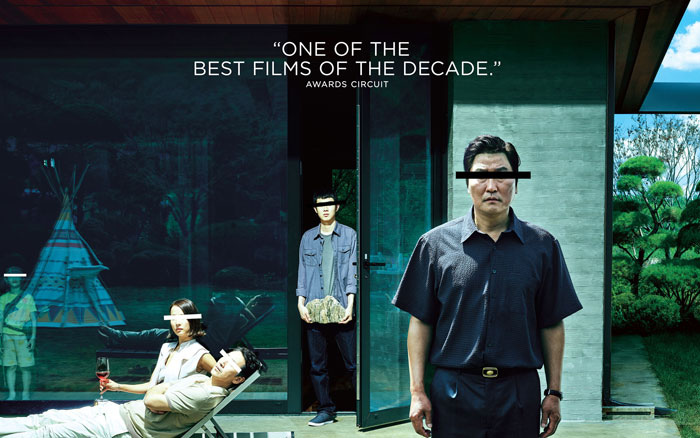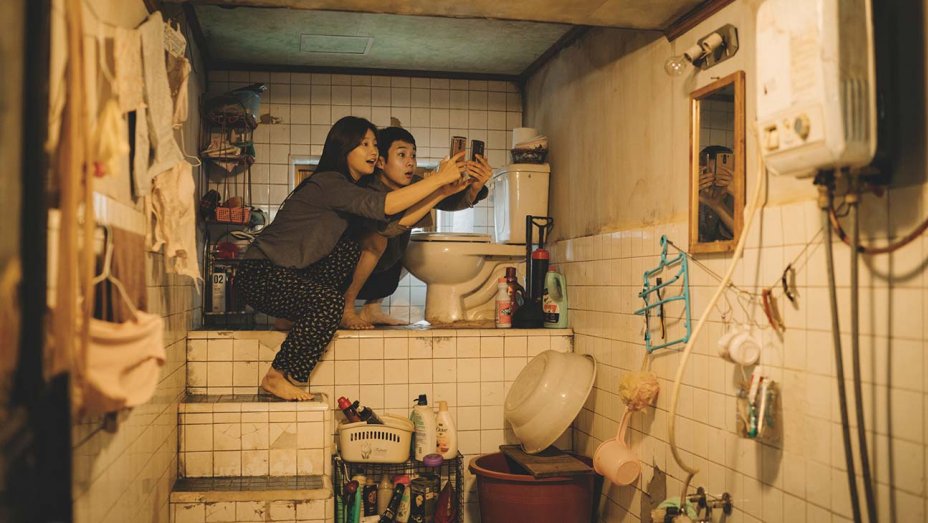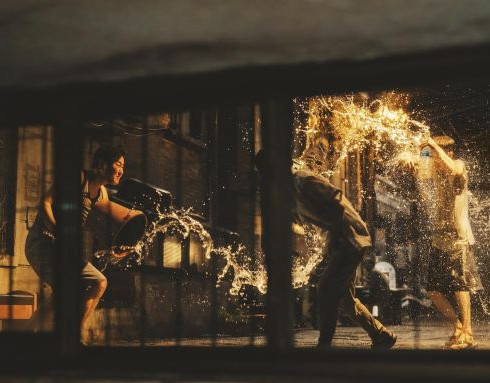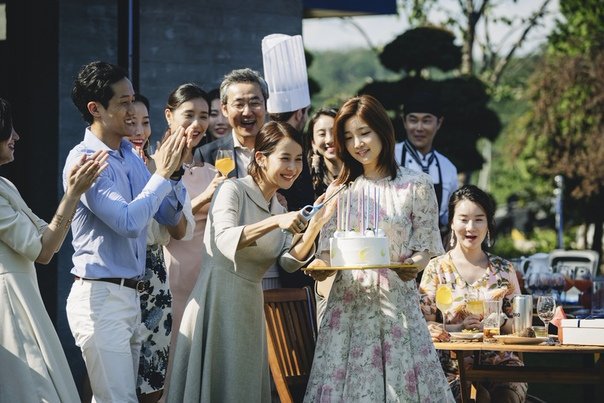Parasite: through the lens of culture and also, what Capitalism has done to us...
- Utkarsha Kotian
- Feb 10, 2020
- 4 min read
This is not a movie review.
Bong Joon-ho’s black comedy thriller, Parasite is a phenomenal social satire that makes you laugh, cry, cringe, and gasp with awe. It subliminally lands you into this solid inescapable cage with one ravenous truth staring deep into your eyes, waiting to claw out your preconceived notions and blinded prejudice.
This one hit me hard. With irony-laced dialogues and morally-laced characters, Parasite is a movie that makes you think. It gives you a hauntingly accurate representation of modern society. It doesn’t necessarily paint the poor as tragic and sentimental or the filthy rich as evil but portrays them as they are – a balanced mix of both virtues and vices. Yin & Yang.
A recurring theme in this movie is the concept of Capitalism. The class distinction is shown both metaphorically and literally with the help of three homes (The Parks, The Kims and that of the old couple) by the metaphorical use of sunlight - “the rich have access to more sunlight than the poor.” The Parks’ house is located on the highest point of a hill. It is a huge swanky mansion with French windows that allow maximum sunlight to flood in and brighten every corner of their designer home. The Kims’ house is situated just above and below the surface of the ground, as most of the houses in the ghettos of South Korea that are underground but the tiny windows give a peek into the land above and the world beyond. This is also a symbolic representation of the lifestyle of this working-class family that has access to wifi, education and all the envious commodities that Capitalism churns out in batches every month. Finally, the old couple living in the cold, dark, basement of Mr. Park’s mansion for years altogether have no view of the sun and are satisfied with a roof over their head and a couple of bananas to feed on.
The Kims don’t have direct access to sunlight like the Parks do, but they aren’t even deprived of it like the family in the basement. Just as a moth is drawn to light, The Kims are drawn to a self-sabotaging pursuit of wealth. The movie opens with a view of the sunset from Mr. Kim’s window - probably hinting at the end of prosperity for the family with a vanishing sun.
Parasite shows how fine distinction of class and class status functions only to keep those at the bottom divided, driving them to fight amongst themselves in hopes of making marginal gains at the expense of one another. When we look at the poor characters of Parasite fighting among themselves, trying to maintain their subordinate positions, we see that there is no attempt or even ability to overthrow the system of prevalent domination.
This directly contradicts the mantra of modern capitalism, which has attempted to convince people that with a little hard work and determination anyone can achieve higher status, while the reality is that the rich maintain their wealth by consent of the masses while creating the illusion of social mobility. In an interview, Bong revealed that it would take 564 years for Ki-woo, the young ambitious boy of the Kim family to save enough money to buy the mansion that his family worked in.
The boundaries that Mr. Park expects his recruits to abide by are not only professional guidelines but also a division that maintains his status as superior. He compliments the previous housekeeper for never crossing her boundaries. Mr. Kim tends to dance on that line. The most striking symbol of class distinction is the rotten egg smell that comes from the Kim family. The Park’s are disgusted by it, and they make their disdain very evident. This sheds a light on the privileged bubble the Park family is happily engulfed in. They don’t know anything about the struggles of the poor and would believe any lies about the working class if they’re served to them with a little manipulation. During her drive back home from the supermarket Mrs. Park tells her friend on the phone that the rains on the previous night were, in fact, a blessing. The camera instantly pans onto Mr. Kim’s face. While the Parks only suffered a minor inconvenience of canceling their camping trip, the Kims stayed up all night evicting their belongings from a flooded apartment. The long descending journey through staircases from the mansion to the squatty house very cinematically represents an unfathomable gap between the two classes.
At the house party, the Parks go to absurd lengths to indulge their son’s fixation with native Indian aesthetics. Bong uses this motif to critique capitalism’s way of reducing complex cultures into just surface-level commodities. This thought can also be elaborated by taking into consideration the grand masterpiece made by an infamous architect called Nam-yoong which is eventually reduced to a mere playhouse of the privileged.
Another striking analogy one can make is the remark Mrs. Kim makes when she says “if I had the money Mrs. Park has I’d be as nice, in fact, nicer than her.” Remember Maslow’s ‘Hierarchy of Needs?’ One can only think about self-esteem, self-actualization after they have a solid, unshakeable foundation of food, clothing, shelter, family, and security.
The capitalistic culture is so unethically embedded in our society today, that while we appreciate its commodities, we are blind to the labor that goes into making it. For instance: We’re so glued to the sleek and seamless design of an iPhone that we’re unaware of how its manufacturing partner is violating labor laws in China. In Parasite, what Mr. Park assumed to be automated lights were signals in Morse Code sent religiously by a lunatic system of head-banging on the switchboard devised by a man living in the basement for 4 years.
After the movie is over one can’t help but wonder who the real parasites are: the Kim family that fed off the wealth of the Parks every day or the Park family that leeched onto the labor of the Kims and exploited people like them to create this wealth in the first place, without giving anything back except the bare minimum means of survival.
.png)


















Comments